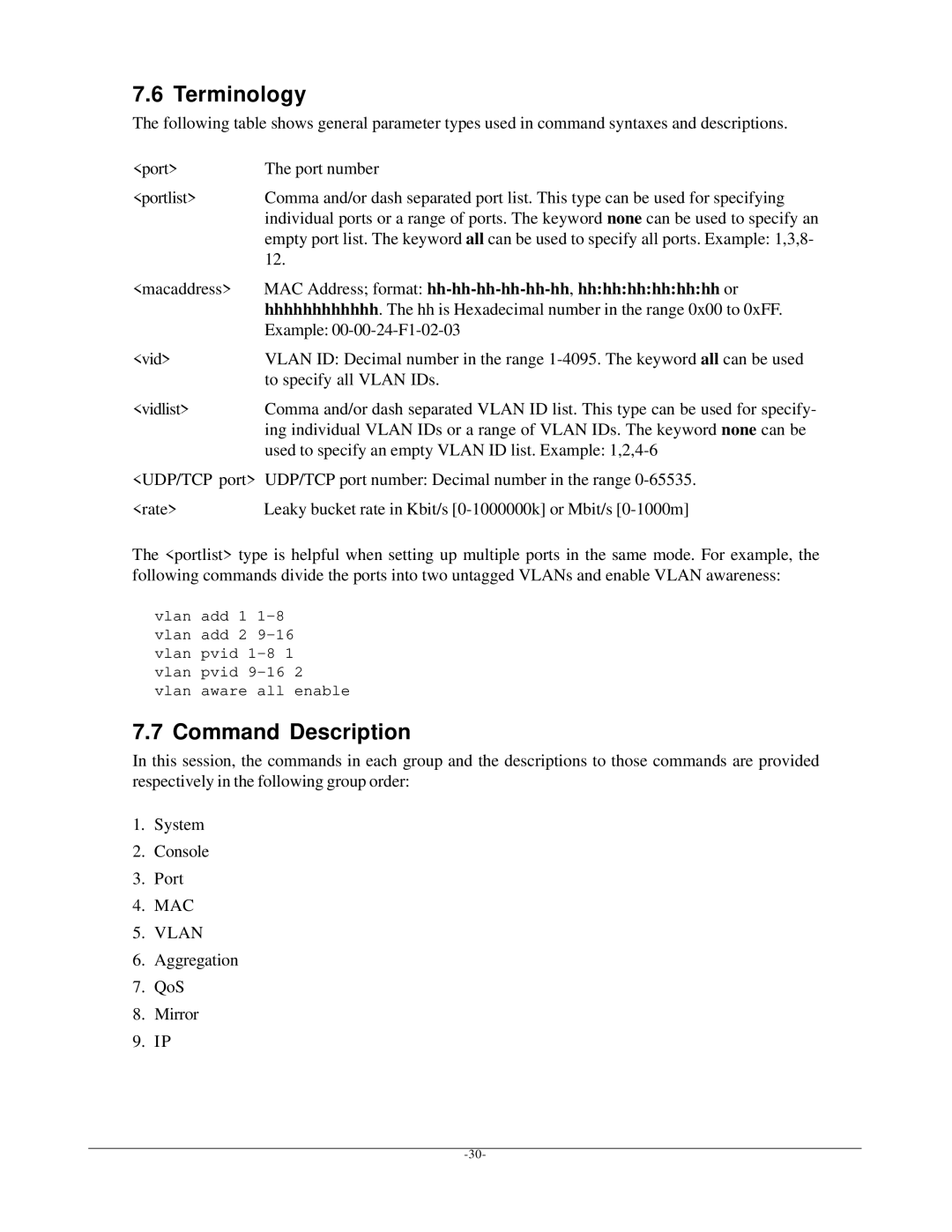7.6 Terminology
The following table shows general parameter types used in command syntaxes and descriptions.
<port> | The port number |
<portlist> | Comma and/or dash separated port list. This type can be used for specifying |
| individual ports or a range of ports. The keyword none can be used to specify an |
| empty port list. The keyword all can be used to specify all ports. Example: 1,3,8- |
| 12. |
<macaddress> | MAC Address; format: |
| hhhhhhhhhhhh. The hh is Hexadecimal number in the range 0x00 to 0xFF. |
| Example: |
<vid> | VLAN ID: Decimal number in the range |
| to specify all VLAN IDs. |
<vidlist> | Comma and/or dash separated VLAN ID list. This type can be used for specify- |
| ing individual VLAN IDs or a range of VLAN IDs. The keyword none can be |
| used to specify an empty VLAN ID list. Example: |
<UDP/TCP port> UDP/TCP port number: Decimal number in the range
<rate> | Leaky bucket rate in Kbit/s |
The <portlist> type is helpful when setting up multiple ports in the same mode. For example, the following commands divide the ports into two untagged VLANs and enable VLAN awareness:
vlan add 1
7.7 Command Description
In this session, the commands in each group and the descriptions to those commands are provided respectively in the following group order:
1.System
2.Console
3.Port
4.MAC
5.VLAN
6.Aggregation
7.QoS
8.Mirror
9.IP
